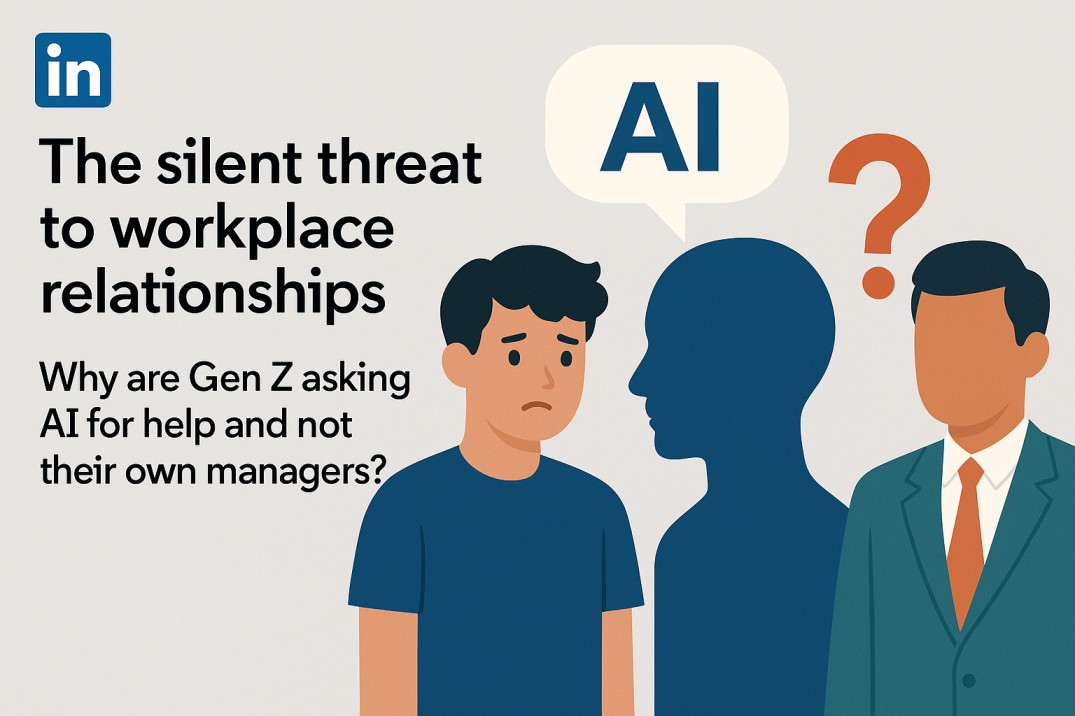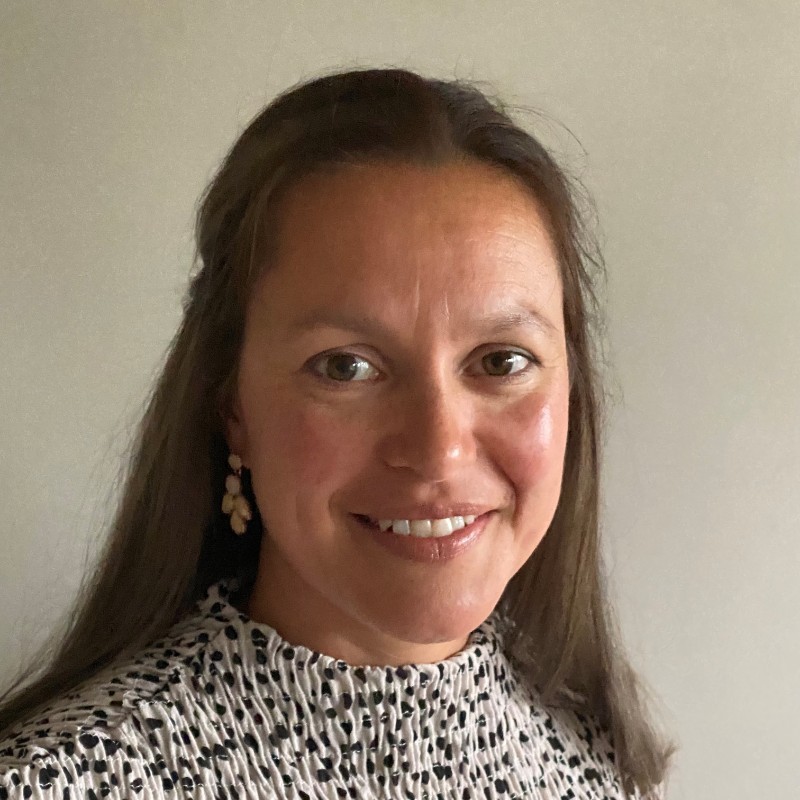
Why are Gen Z asking AI for help and not their own managers?
Are the relationships between some managers and their teams facing a breakdown of trust and structure? A survey by Robert Walters, referenced in a recent article by the CIPD found that a third of Gen Z professionals are turning to AI before asking their manager for help. This has led to 39% of UK professionals asking their line manager few questions overall.
On the surface this is just part of the evolution of efficiency and productivity. AI certainly can handle queries that take away the reliance from managers. But organisational experts warn this is a dangerous short-cut that is actively eroding the interpersonal connections and knowledge transfer that is essential for strong team cultures.
I get it, for people joining workplaces, often where there’s still a mix of working from home and in the office, using AI can feel a lot less ‘judgmental’ than approaching your already busy manager, especially if it sounds like you’re admitting you’re struggling. For managers too, workloads are just increasing and you’re often less “present” or available.
But as a result, managers are losing the opportunity to spot when people are truly struggling and team members are feeling disconnected. The outcome… the all important interpersonal and analytical thinking and coaching skills are not being used, and at worst we’re losing vital skills.
Even though the CIPD article put the use of AI at the centre of the problem, I saw it from another angle. It’s the lack of a reliable, structured template for person to person interaction.
The Cognitive Behavioural Model (CBM)
Having a consistent, predictable structure for check-ins and coaching conversations is something that AI can’t provide. It can’t genuinely replace the context, the trust, and the courage to challenge that a manager can provide.
In The Coaching Corner, the book I co-wrote last year, I highlighted how the cognitive behavioural model (CBM) can be adapted to provide this critical framework. As an example, using the CBM framework can transform the humble yet vague “how are you” into an insightful discussion focussing on the link between action and outcome. It gives the manager and their team member a clear and neutral space to work through:
- What’s the situation?
- What was the immediate thought about it?
- What emotion did that trigger?
- What did you do or maybe what did you avoid doing?
- And now we’re open about that, what could you do now to achieve a better outcome?
By following a structure, you remove the anxiety over what to say, and by posing open questions, you remove the tendency to assume. The conversation then becomes an opportunity to build trust, increase your visibility and your deeper insight into your team’s thoughts and feelings not just the problem that’s surfaced, and develop critical thinking helping to see problems as opportunities to analyse and benefit from guided solutions.
To bridge the relationship gap between Gen Z and the manager, we don’t need to ban the use of AI, instead we need to be more intentional about how we interact, human to human. Using a framework like CBM helps managers start with “how can I help?” and follow a clear path to provide safe support and context that allows the team member to still have autonomy of finding the answer.
So next time you have a weekly or monthly conversation with your team member or manager, check whether a framework will help you.

